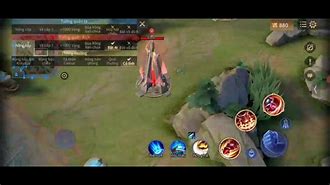
Tập 63 Test Vị Tướng Skud 2 Mặt
Speaker: Today we ask our friends: Tom from Australia, Linh from Viet Nam and Nobita from Japan to tell us about their robots. Tom, would you like to start?
Speaker: Today we ask our friends: Tom from Australia, Linh from Viet Nam and Nobita from Japan to tell us about their robots. Tom, would you like to start?
Work in pairs. Express your opinions about the following statements. Use the highlighted phrases in the dialogues above.
A: Home robots are the most useful of all types of robots.
A: Some people can use robots to do bad things.
A: Robots will use too much electricity in the future.
A: Robot gia đình là loại robot hữu ích nhất trong tất cả các loại robot.
Đáp: Một số người có thể sử dụng robot để làm những việc xấu.
Đáp: Robot sẽ sử dụng quá nhiều điện trong tương lai.
Hướng dẫn giải Bài tập 2 trang 63 SGK tiếng Anh lớp 8 - sách mới
2. Work in groups. In turn, retell the fairy tale to your group members in your own words. Choose the best storyteller in your group.
(Làm theo nhóm. Lần lượt kể lại câu chuyện cổ tích này cho các thành viên trong nhóm theo cách riêng của bạn. Chọn người kể chuyện hay nhất trong nhóm.)
There was a girl called Little Red Riding Hood.
(Có một cô bé tên là quàng khăn đỏ.)
One day, she walked through the woods to deliver food to her sick grandmother.
(Một ngày nọ, cô băng qua khu rừng để mang đồ ăn tới cho bà cô đang bị ốm.)
On the way, she met a bad wolf. She naively told him where she was going.
(Trên đường đi, cô gặp một con sói gian ác. Vì ngây thơ nên cô đã nói cho nó biết cô đang đi đâu.)
He suggested that the girl pick some flowers as a present for her grandmother.
(Nó khuyên cô hái mấy bông hoa làm quà cho bà.)
Meanwhile, he went to the grandmother's house and swallowed her.
(Trong khi đó, nó tới nhà người bà và nuốt chửng bà.)
When the girl arrived, she noticed that her grandmother looked very strange.
(Khi đến, cô bé nhận thấy bà của mình trông rất lạ.)
Then the girl was also eaten by the wolf.
(Sau đó cô bé cũng bị sói ăn thịt.)
Luckily, a woodcutter heard the scream and ran to the house to save Little Red Riding Hood and her grandma.
(May mắn thay, một người tiều phu nghe thấy tiếng hét và chạy tới để cứu cô bé quàng khăn đỏ và bà của cô.)
The wolf ran away into the forest.
J: Come on Marco. We’ve got to get on and sort out this project for Professor Barclay.
M: Hang on. I want to make sure we’ve got all the information. Now …… where are we?
J: Well, today we need to sort out exactly what we’re going to do and how we’re going to divide the work up.
M: OK. How long have we got, by the way?
J: Um… the end of term is April 6th and he said to hand it in on week 8, so that’s March 25th at the latest because the beginning of that week is the 21st. So not long!
M: Right. Have you got the notes there?
J: Yes, he wants us to do a fairly small-scale study, like the last one, on whether or not businesses were offering more benefits to staff. We’ve now got to look at the rise in older workers. Should be fairly straightforward.
M: Yeah, as long as we keep it small. Who’s marking it?
J: Don’t know – sometimes he gets the PhD students to mark it for him.
M: Oh actually it just says here ‘a senior lecturer’. I suppose it’s too much for Professor Barclay to do them all.
J: Yeah. Anyway, how are we going to go about this?
M: Well, we have to decide how big we want it to be and who we’re…
J: … Yeah, but I think we must sort out a timetable for the project otherwise nothing will get done.
J: Alright. I'll do it as soon as we finish here.
M: OK – what do we have to do now for the project? What’s the best way to go about it? Um… well, Professor Carter suggested we set up a focus group to get some in-depth interviews but I think that’ll take a lot of time.
J: Yeah, I agree. If we did a focus group, we’d have to spend time deciding who to include in it and it’s not necessary to do one anyway.
J: And, if you agree, I think we should get in touch with the businesses on the list Professor Carter gave us and ask them if they’re prepared to participate .
M: Sounds good – then we can go there, give them questionnaires and collect them later.
M: OK. Then do we need to book one of those study rooms in the library so we can work together to input the data? Perhaps not, as I guess just one of us could just sort it out, actually.
J: Yes, that would be easier. A lot of what we’re doing is qualitative, so it’ll be writing up rather than statistics. No software for that I’m afraid! ,
M: And I think it would look better if we had actual shots of some of the staff because we’re citing appearance as a factor in employability, aren’t we?
J: Yeah. OK. I’ll factor that all in when I sort everything out tonight.
M: I’m glad we decided to work together. I think it’s going to work out well.
J: Yes, well, given that we had to work in pairs on this project, I think we were right to choose each other. We complement each other academically as we’re each good at what the other isn’t! In fact, we should have tried working together before!
M: Yes! Now, how shall we split the work? I’ll do the analysis, shall I?
M: It’s just that it might be faster because I’m used to doing it – although your English is better than mine. I need more practice at reading, really.
J: OK. I’ll do the presentation then. If that’s OK with you?
M: Yeah, sure. I don’t mind speaking in public but I hate preparing all the notes for them.
J: Thing is, the tutor said one person should do the whole presentation and he said he expected me to do it because I haven’t done one yet.
Listen and read the dialogues. Pay attention to the highlighted sentences.
A: I think robots can help us a lot in our daily life.
A: Peter says robots can do everything like humans.
A: Tôi nghĩ robot có thể giúp chúng ta rất nhiều trong cuộc sống hàng ngày.
A: Peter nói robot có thể làm mọi thứ giống như con người.
B: Tôi không đồng ý với anh ấy.)
Interview three friends about what abilities they want their robots to have. Note their answers in the table below.
Abilities he / she wants his / her robot to have
You: What abilities you want your robot to have?
Pham: I want my robot can cook meals
You: What abilities you want your robot to have?
Thuy: I want my robot to water my plants
You: What abilities you want your robot to have?
Hai: I want my robots to clean the floor
(Bạn: Bạn muốn robot của mình có những khả năng gì?
Phạm: Tôi muốn robot của tôi có thể nấu bữa ăn
Bạn: Bạn muốn robot của mình có những khả năng gì?
Thúy: Tôi muốn robot tưới cây cho tôi
Bạn: Bạn muốn robot của mình có những khả năng gì?
Hải: Tôi muốn robot của tôi lau sàn)
Trên đây là toàn bộ đáp án và giải thích chi tiết bài tập SGK Tiếng Anh 6 Unit 12 Communication. Thông qua bài viết trên, Anh ngữ ZIM hy vọng rằng học sinh sẽ tự tin học tập tốt với môn Tiếng Anh 6 Global Success. Ngoài ra, Anh ngữ ZIM hiện đang tổ chức các khóa học IELTS Junior với chương trình được xây dựng dựa trên sự phối hợp của 4 khía cạnh: Ngôn ngữ - Tư duy - Kiến thức - Chiến lược, giúp học sinh THCS chinh phục bài thi IELTS, phát triển kiến thức xã hội và tự tin sử dụng tiếng Anh.
Xem tiếp: Tiếng Anh 6 Unit 12: Skills 1.
Hoàng, Văn Vân. Tiếng Anh 6 Tập 2 - Global Success. NXB Giáo Dục Việt Nam.






















